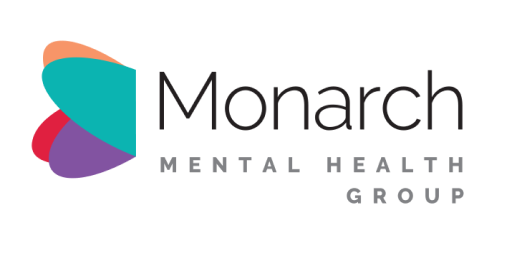When a person serves in the military, their commitment to protect others often comes at a personal cost—one that extends beyond the individual. For many Australian veterans, the transition to civilian life is complicated by mental health challenges such as Post-Traumatic Stress Disorder (PTSD), anxiety, depression, and substance use disorders. But while these issues are often viewed through the lens of the veteran’s experience, the ripple effect on families is profound, far-reaching, and frequently overlooked.
At Monarch Mental Health Group, we recognise that mental health is not an isolated concern. It exists within families, relationships, and communities. Understanding the impact of veterans' mental health on their families is key to creating holistic support services that enable recovery not only for the individual, but also for those closest to them.
The Hidden Cost of Service: Mental Health in Veterans
Veterans face unique stressors, from the psychological strain of combat to the abrupt shift back into civilian life. Conditions like post-traumatic stress disorder (PTSD), depression, anxiety, and chronic pain are common, and many also experience difficulty managing anger, maintaining employment, or navigating social interactions.
These conditions may arise months—or even years—after service ends. Without access to timely, effective care, symptoms can intensify, often leading to strained relationships, social isolation, or withdrawal from family life.
At Monarch, we support veterans in Australia with a wide range of innovative and evidence-based mental health treatments, including repetitive transcranial magnetic stimulation (rTMS) for depression and PTSD, nasal spray for depression, psychiatric medication optimisation, psychological therapy, and comprehensive assessments. But we also understand that healing doesn’t happen in a vacuum.
The Family Experience: Living with a Veteran’s Mental Health Condition
Family members, particularly spouses and children, are often the first to notice changes in behaviour and emotional wellbeing. These changes can be subtle—like disrupted sleep and mood swings—or more severe, including emotional detachment, substance misuse, or outbursts of anger.
Spouses and Partners
Living with a partner who is struggling with their mental health can feel like walking on eggshells. Many spouses describe feeling emotionally distant from their partner, unsure of how to help or communicate effectively. Intimacy may suffer, and the partner may take on more responsibilities in the home to compensate for the veteran’s difficulties. Over time, this imbalance can lead to compassion fatigue, resentment, and relationship breakdown.
Children
For children, a parent’s mental health condition can be deeply confusing. They may not understand why mum or dad is withdrawn, irritable, or no longer interested in things they once enjoyed. Studies show that children of veterans with PTSD are at greater risk of behavioural issues, anxiety, depression, and difficulties at school.
Extended Family
Grandparents, siblings, and other extended family members can also be affected—especially when they step in to provide care or emotional support. These added responsibilities can create stress, disrupt family dynamics, and impact the mental health of the wider family unit.
Breaking the Cycle: Why Family Support Matters
Families are not just impacted by mental illness—they are also essential to recovery. Research shows that veterans recover more effectively when their families are involved in the treatment process. Open communication, education, and structured support can significantly improve outcomes for both veterans and their loved ones.
At Monarch Mental Health Group, we encourage a collaborative, whole-of-family approach. Our experienced team of psychiatrists, psychologists, and mental health nurses provide not only individual therapy and medical management for veterans but also education, support, and counselling services for families. We also have a helpful ebook for partners wanting to better support their loved one with PTSD.
This might include:
- Family psychoeducation – Helping families understand mental health conditions, symptoms, and treatment pathways.
- Couples therapy – Supporting communication, rebuilding connection, and navigating shared responsibilities.
- Parenting support – Helping parents maintain a nurturing environment while managing their own wellbeing.
- Support groups – Creating safe spaces for families to connect with others experiencing similar challenges.

Stigma and Silence: The Barriers Families Face
Unfortunately, stigma remains a major barrier to seeking help—especially among military families. Some worry that seeking psychological support could be seen as weakness or disloyalty. Others may fear that acknowledging the issue could cause distress or embarrassment to the veteran.
At Monarch, we work to create an open and non-judgemental environment. Our mental health clinics across NSW, Queensland, and Victoria provide confidential care and are fully accredited to the National Safety and Quality Primary and Community Healthcare Standards. We actively partner with referring GPs, allied health professionals, and veteran support services to ensure a seamless and respectful care pathway.
A Call to Action: Seeking Help is Strength
If you’re a veteran—or a family member—struggling with the mental health challenges that come after service, you are not alone. These experiences are valid, common, and treatable. The earlier you reach out, the sooner you can begin to heal—together.
Whether it’s a one-off consultation or an ongoing treatment journey, Monarch Mental Health Group is here to help. Our tailored programs support each individual’s unique experience, and our team is trained to understand the complex nature of military service and its aftermath.
With locations across Australia, including Sydney and Melbourne, and a multidisciplinary approach to care, we’re proud to help veterans and their families take the next step towards recovery.

Veterans Don’t Walk This Path Alone—And Neither Should Their Families
The effects of mental health challenges don’t stop at the veteran—they echo through families, relationships, and generations. But with the right support, understanding, and care, it is possible not only to manage these challenges but to overcome them. At Monarch Mental Health Group, we are dedicated to helping you walk this path—together.
Contact us today with a referral from your doctor to schedule a consultation and take the first step toward healing.
FAQs
How does PTSD in veterans affect their families?
For veterans, PTSD can lead to emotional withdrawal, irritability, or mood swings, which deeply impact spouses and children. Family members may feel confused, helpless, or even frightened. Over time, this can strain relationships, affect parenting, and lead to anxiety or depression in loved ones. Early mental health support and treatment can help ease these effects for everyone involved.
What mental health services does Monarch offer for Australian veterans and their families?
Monarch provides tailored care for veterans including rTMS, dTMS, psychiatric assessment, psychological therapy, nasal spray for depression, and medication-assisted psychotherapy. We also support families with education, couples counselling, parenting support, and group therapy. Our psychiatrist-led teams work closely with Australian veterans and their families to ensure the best clinical outcomes and a smoother path to recovery for everyone.
Can children be affected by a veteran parent’s mental health condition?
Yes. Children may feel anxious, act out, or struggle at school if a parent who is a veteran is experiencing PTSD, depression, or anxiety. They often don’t understand the changes in behaviour and may blame themselves. At Monarch mental health clinics in Australia, we offer family-focused support to help children feel safe, supported, and informed while their parent receives treatment.
What should I do if my partner is a veteran struggling with mental health?
Start by encouraging open, non-judgemental conversation and let them know they’re not alone. Gently suggest seeking professional help, and consider attending appointments together. Our mental health clinics in Australia offer comprehensive services for veterans and families, with experienced staff who understand military culture and the challenges of transitioning back to civilian life. We also have a useful ebook on supporting your partner with PTSD. Speak to us today for more information.
Why is involving the family important in a veteran’s recovery?
Recovery is more successful when families are involved. Loved ones provide emotional support, help reinforce positive behaviours, and benefit from understanding the condition. Monarch’s whole-family approach ensures everyone receives the education and tools they need to cope, communicate, and heal—together. Call us today to find out more about our mental health services for Australian veterans.
.png)
About The Author
Dr Ted Cassidy
Dr. Ted Cassidy is a psychiatrist and co-founder of Monarch Mental Health Group in Australia, which provides innovative treatments for depression, PTSD, and anxiety. Monarch Mental Health is recognized as Australia's first outpatient clinic offering assisted therapy and is the largest provider of outpatient magnetic stimulation therapy.

